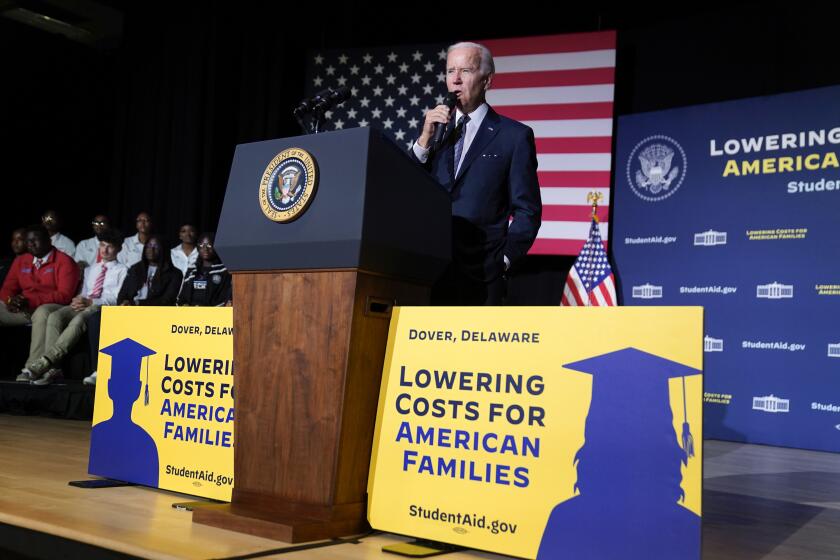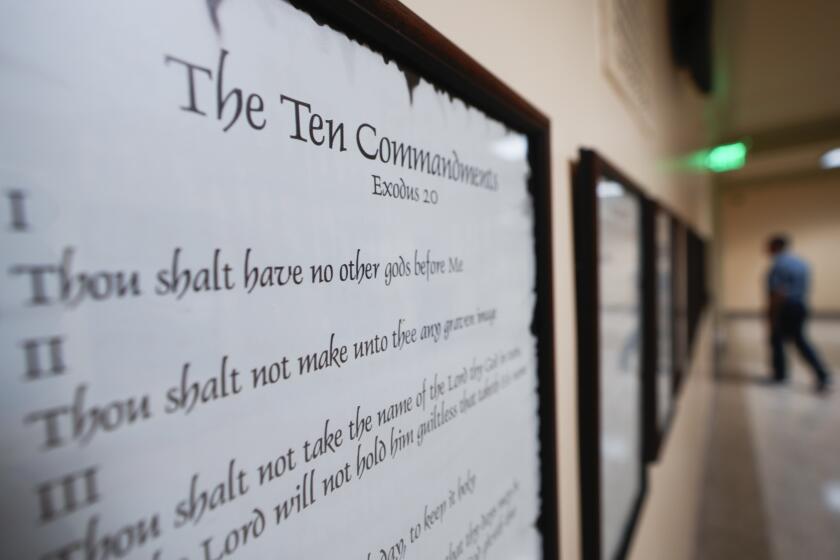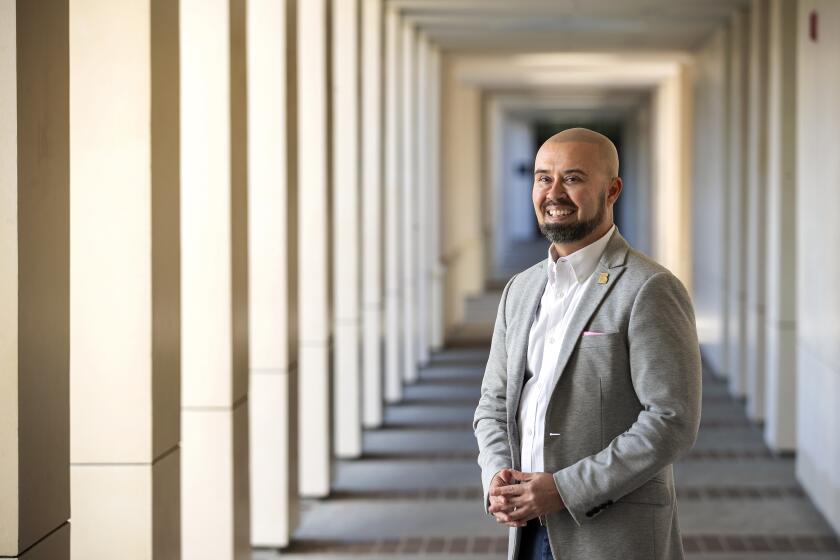Reagan to Push Private School ‘Vouchers’
Education Secretary William J. Bennett said Wednesday that the Reagan Administration will push educational “vouchers” and tuition tax credits in an effort to give poor parents the same opportunity as more affluent ones to choose a school for their children.
Rich families not only can choose to send their children to private school but can also “buy the school of their choice by buying into the neighborhood of their choice,” Bennett said in a speech at the National Press Club. By contrast, he said, many middle-income and poor parents are frustrated by the public schools but cannot go elsewhere.
A 1983 Gallup Poll found that 51% of Americans favored giving parents educational vouchers that they could use toward the purchase of education in the public or private school of their choice, he said. And black parents, often the most dissatisfied with the public schools, approved the idea by a 3-1 ratio, he added.
Cites Parental Frustration
“Parental frustration with particular public schools is now widespread and well-known,” Bennett said. “In some cases, parents realize their children are not learning enough. And, in some cases, (they) learn their children are unlearning in school the lessons they have learned at home.”
His approach differs starkly from that of Terrel H. Bell, education secretary in President Reagan’s first term, who led a national campaign to reform the public schools while remaining silent on vouchers and playing down the Administration’s support for tuition tax credits for children attending private schools.
School officials and teachers’ unions adamantly and uniformly oppose vouchers, charging that they would breed administrative chaos in an educational system supported jointly by local, state and federal governments. And most parents, they add, would seek to enroll their children in what were regarded as the few best schools.
Bennett was asked who would want to send their children to inner-city schools in impoverished neighborhoods.
“Maybe no one would,” he replied. “And what would that tell you about those schools?”
Complicated Plan
He acknowledged that creating a voucher plan would be complicated. Schools would have to offer “transportation subsidies,” he said, to allow poor children to choose schools outside their neighborhoods.
But he disputed the charge that vouchers would destroy the public schools. Giving parents a choice of schools “will not lead to a mass exodus from our public schools, but it will lead to a significant benefit for all schools,” Bennett said.
Public schools have been “holding a captive audience,” he said, and “we believe that competition . . . will be one of the best catalysts to make some of them improve their performance.”
Bennett said that he not only will urge Congress to transform current federal education aid into a voucher program but also will support efforts in such states as Minnesota and Tennessee, where the governors are proposing to experiment with converting state aid into vouchers.
The Education Department will distribute $3.2 billion to public schools this year for the education of poor children, in grants of about $500 per child. Bennett said that he will ask Congress to give those grants directly to poor parents so they can choose to use the money in private schools or in tutoring programs.
Administration officials say privately that they will not push as hard on the once-popular tuition tax credit idea simply because a tax break for school costs could add several billion dollars to the already huge federal deficit.
More to Read
Start your day right
Sign up for Essential California for news, features and recommendations from the L.A. Times and beyond in your inbox six days a week.
You may occasionally receive promotional content from the Los Angeles Times.







